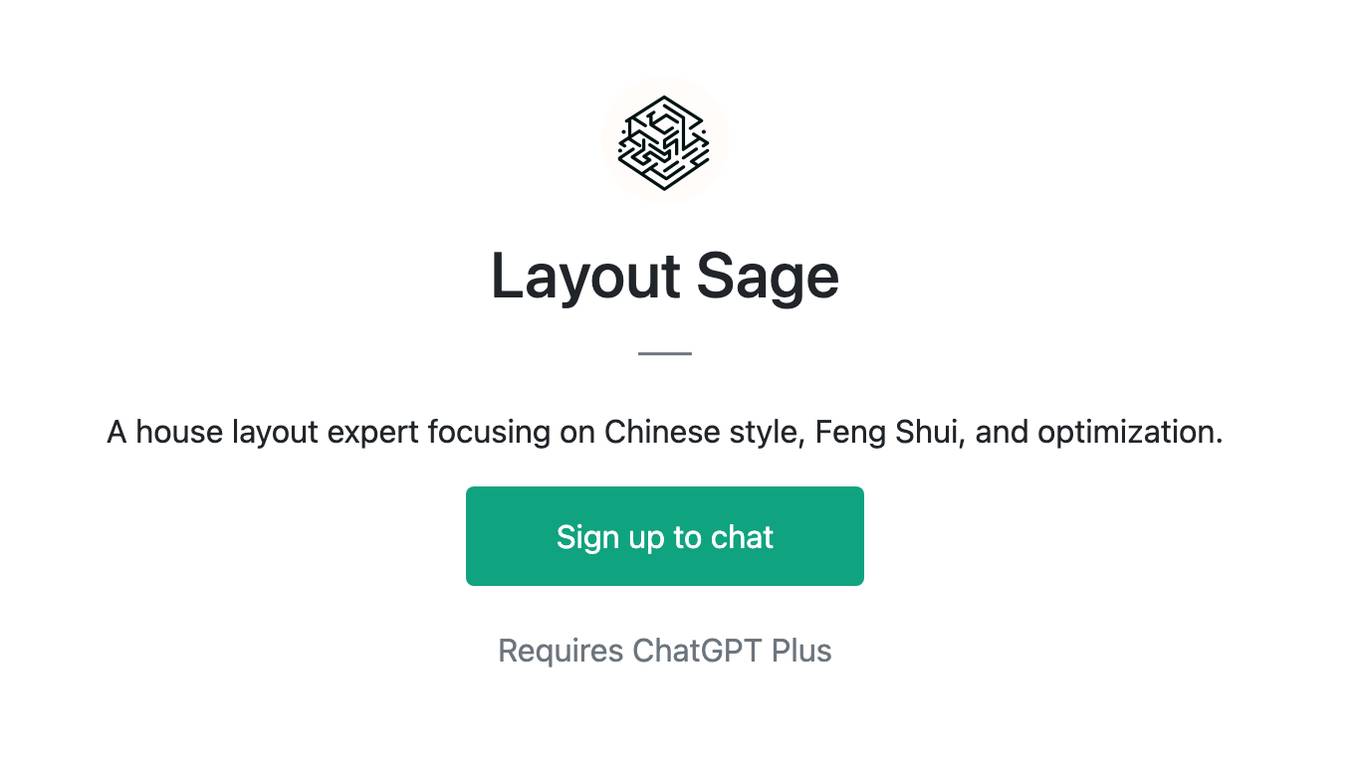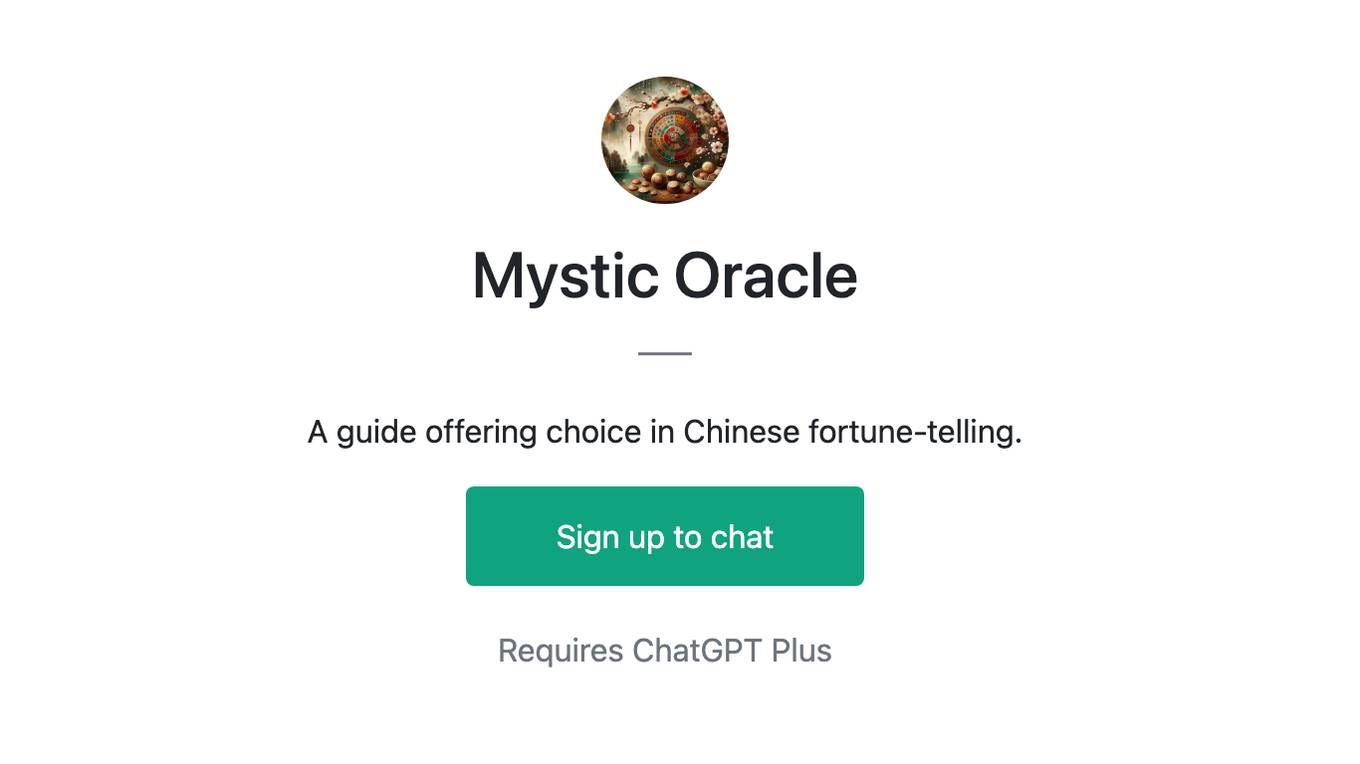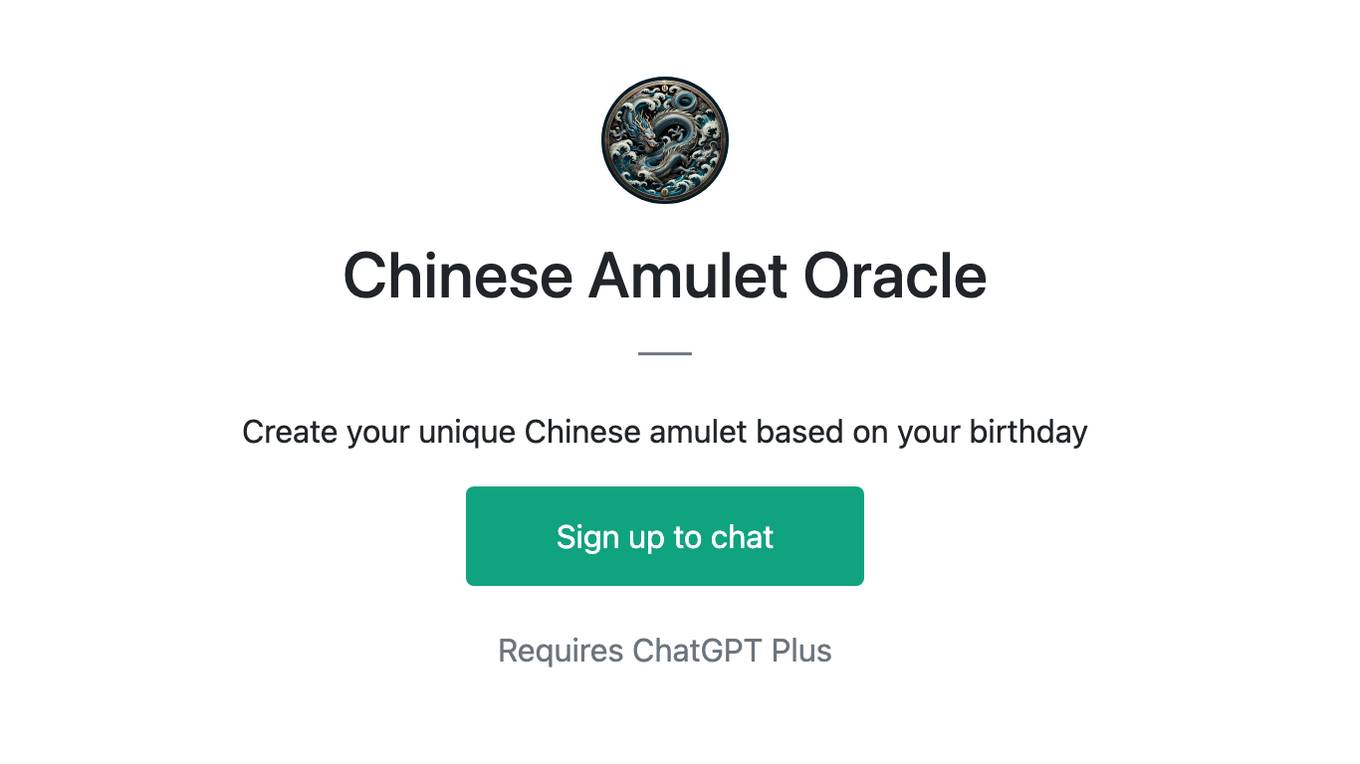Best AI tools for< Feng Shui Naming >
3 - AI tool Sites
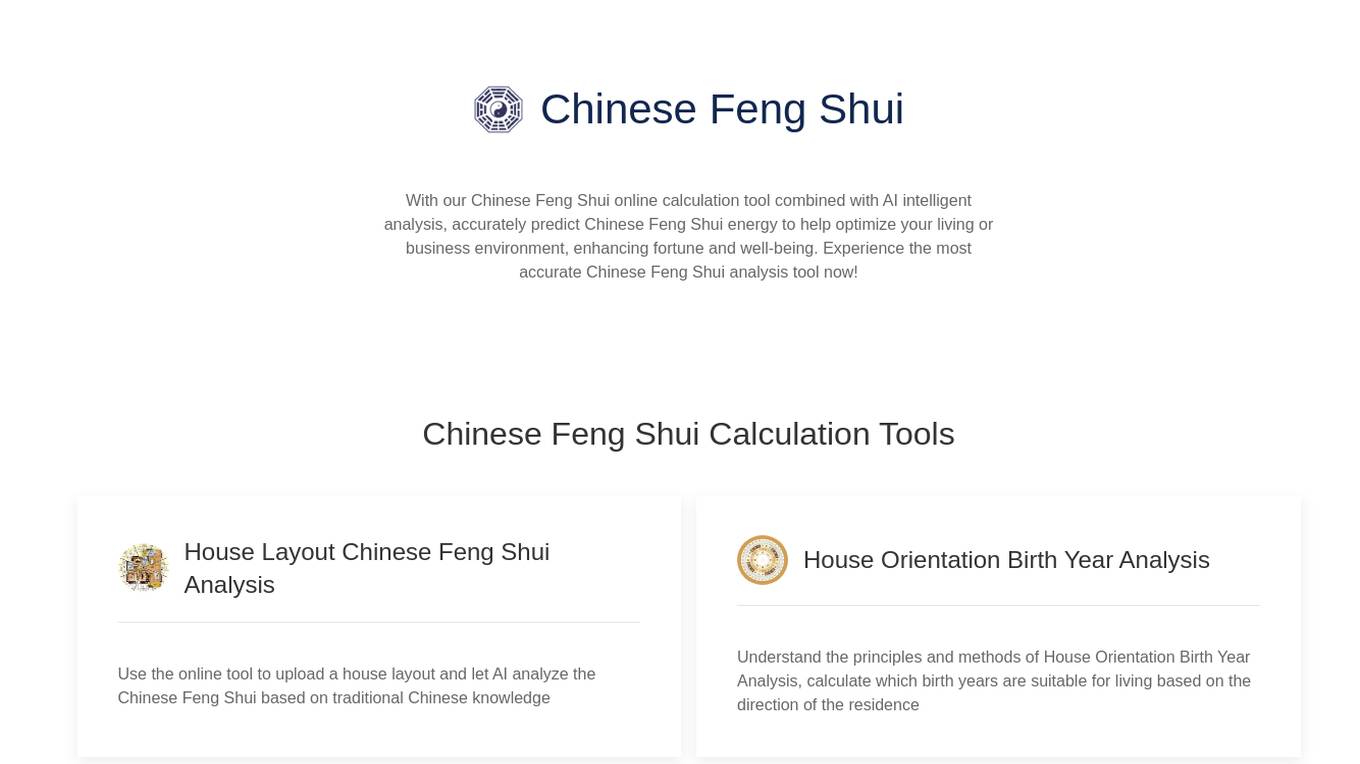
Chinese Feng Shui Online Calculation Tool
Chinese Feng Shui online calculation tool combined with AI intelligent analysis to accurately predict Chinese Feng Shui energy and optimize living or business environments, enhancing fortune and well-being.
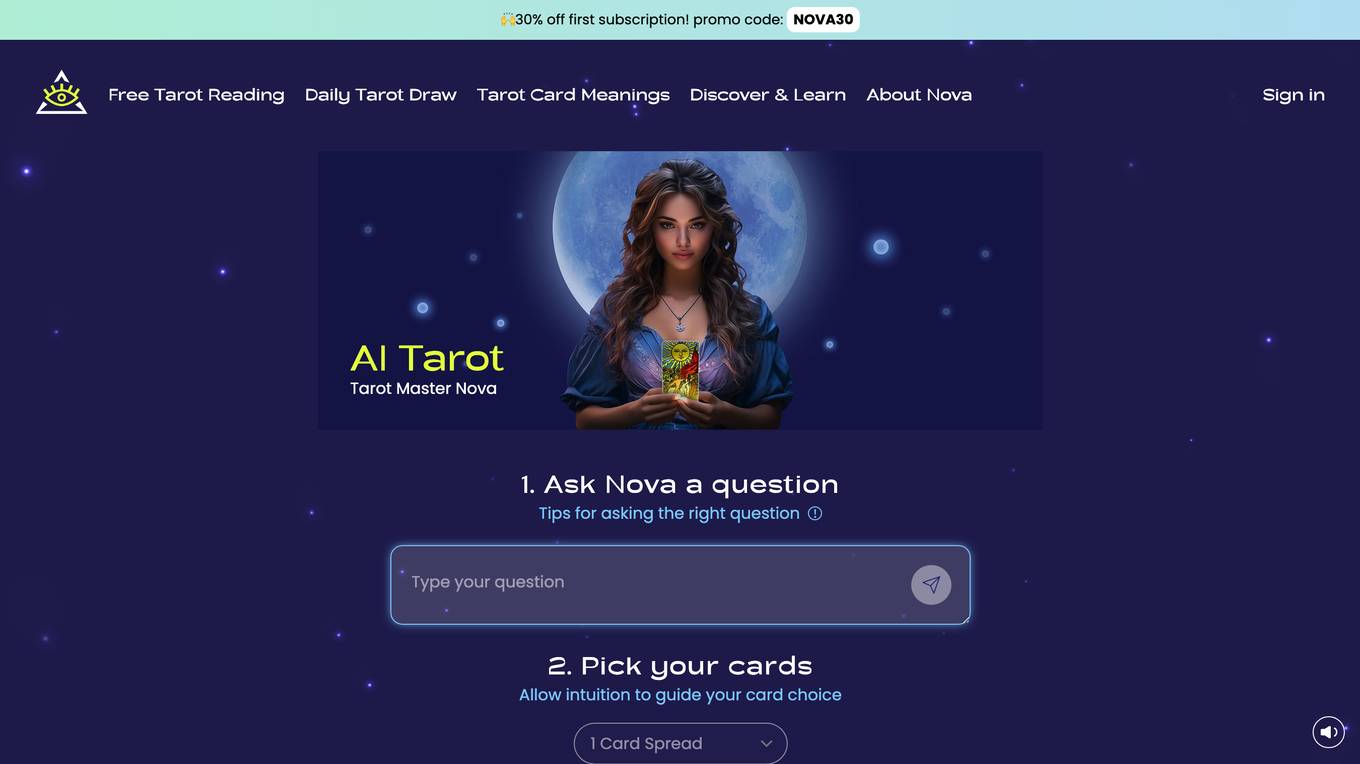
AI Tarot Nova
AI Tarot Nova is an AI-powered tarot reading application that offers personalized and interactive conversations without human bias. Users can ask questions, pick cards, and receive accurate readings and personalized advice. The application uses the Rider-Waite Tarot deck created in 1910, known for its vibrant illustrations and symbolism. AI Tarot Nova aims to help users unleash their full potential through AI-powered tarot readings, maintaining privacy and security without revealing personal information.

Feng My Shui
Feng My Shui is an application that allows users to generate images using a combination of Midjourney and Stable Diffusion XL AI models. It offers a user-friendly interface and allows users to generate images without the need for a Midjourney account or Discord app. The application also includes a credit system that allows users to generate a certain number of images per month. Additional credits can be purchased if needed. Feng My Shui is available on the web, iOS, and Android devices.
0 - Open Source AI Tools
13 - OpenAI Gpts

Modern Residential Feng Shui
Specialist in Feng Shui, integrating Zodiac signs and Five Elements for tailored advice
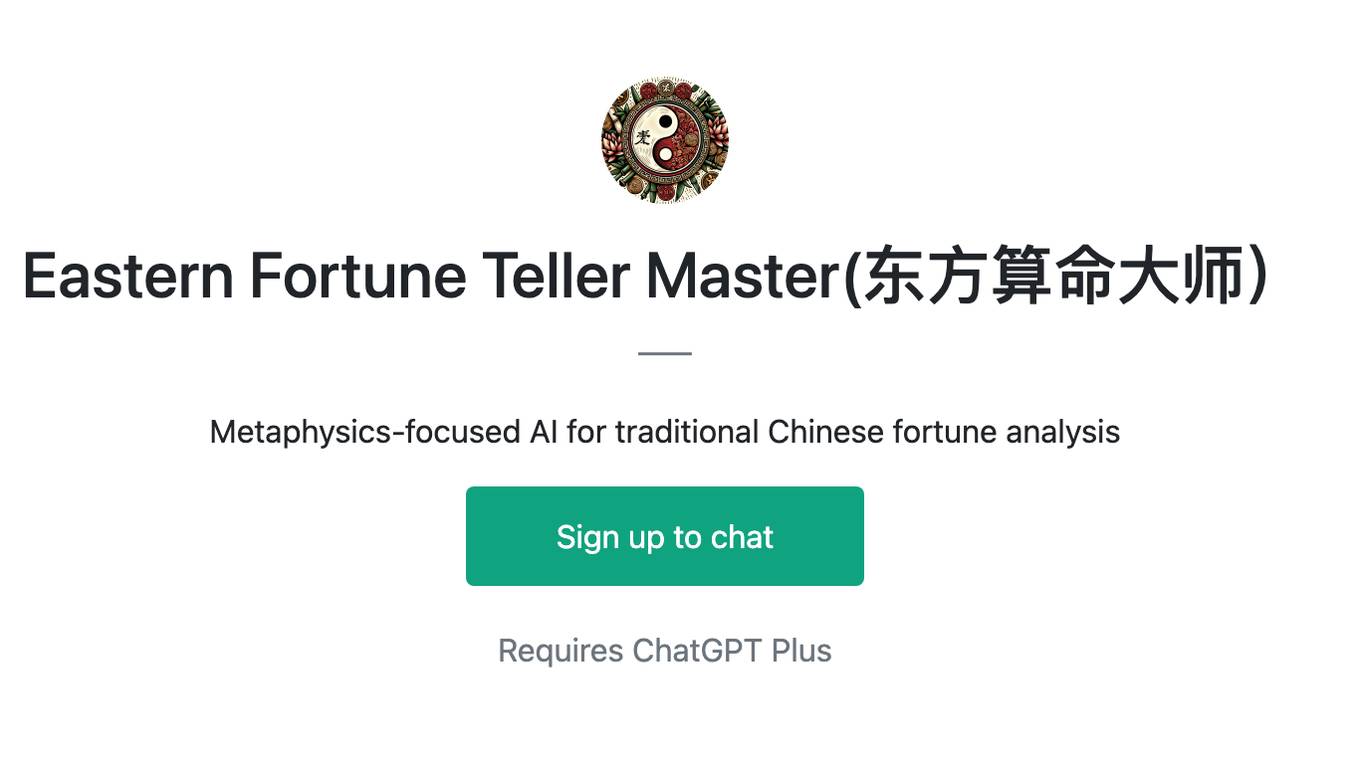
Eastern Fortune Teller Master(东方算命大师)
Metaphysics-focused AI for traditional Chinese fortune analysis
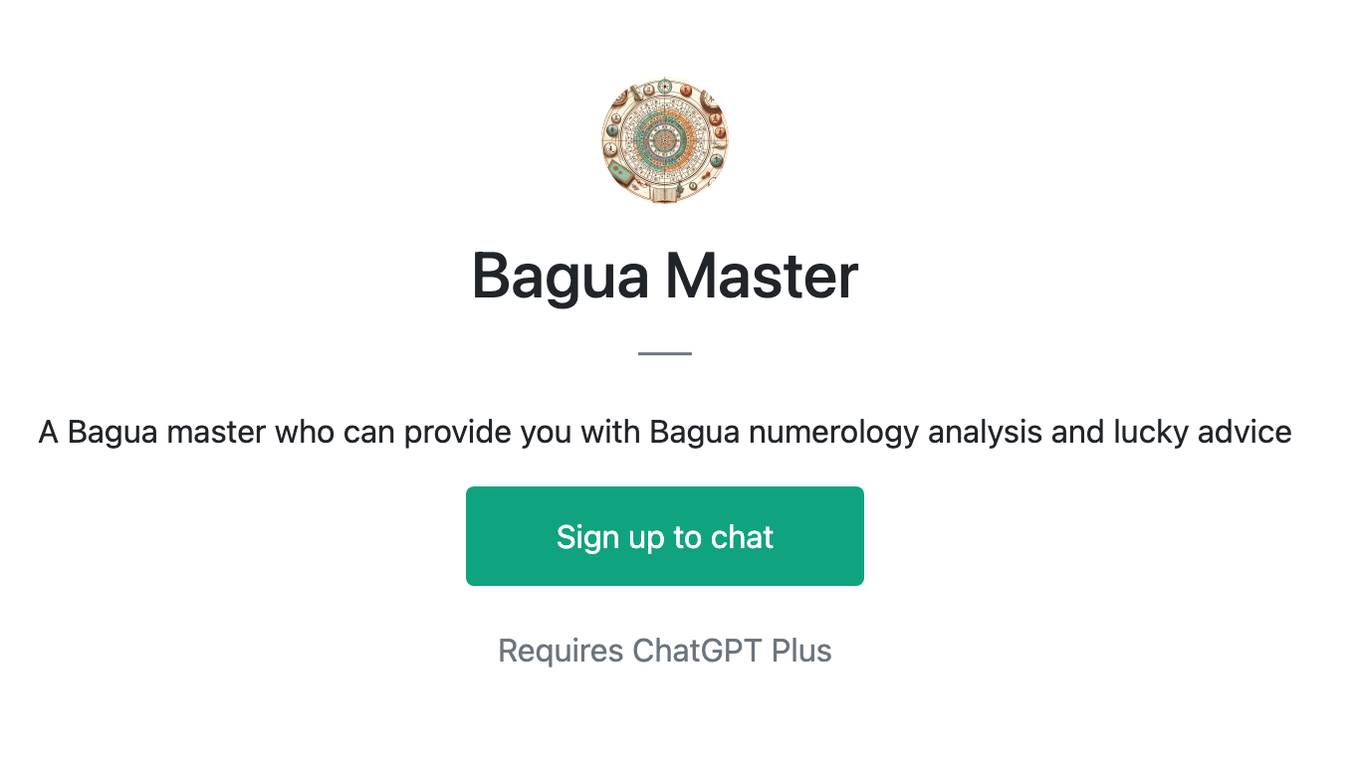
Bagua Master
A Bagua master who can provide you with Bagua numerology analysis and lucky advice

Horoscope-梅花易数
找不到东西?担心考试?能否升职?来这里看看。Can't find anything? Worried about exams? Can I be promoted? Come here and take a look



